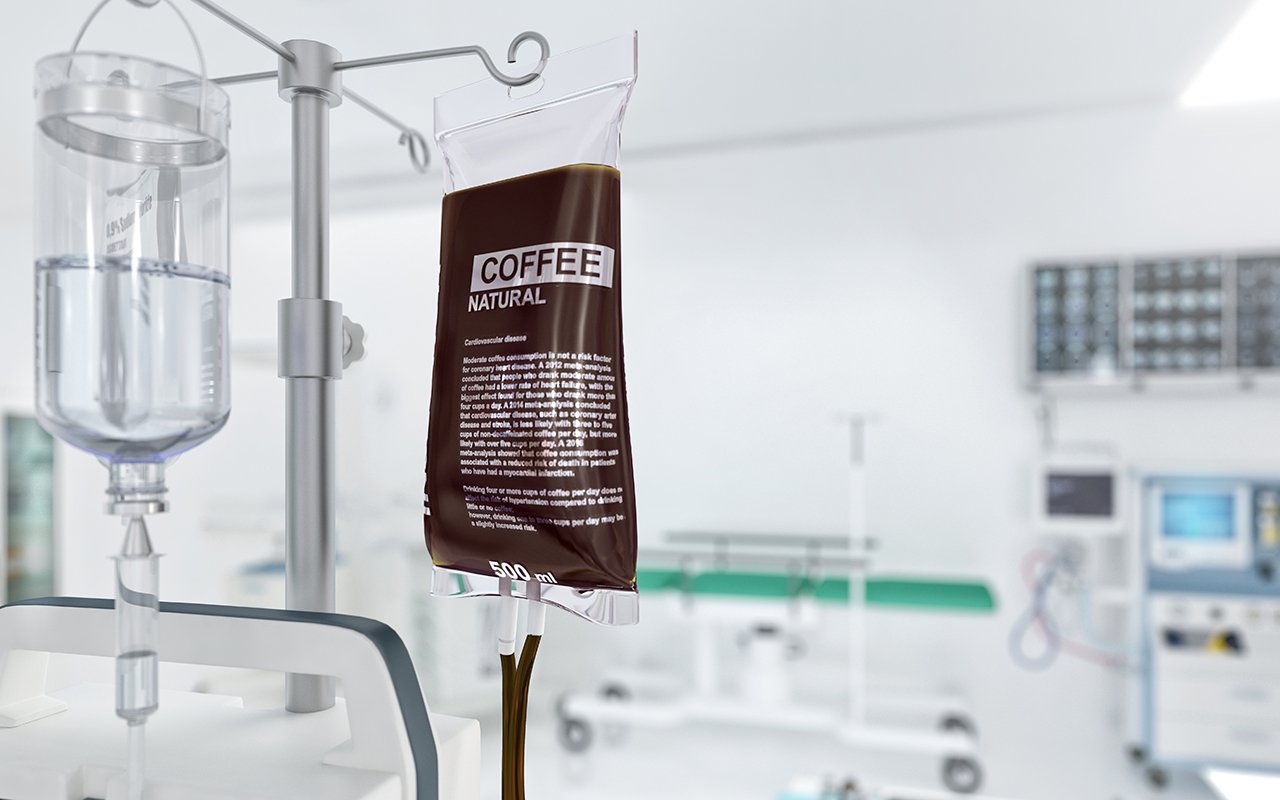Daily coffee doesn’t affect cancer risk
Researchers from the QIMR Berghofer Medical Research Institute have found that drinking coffee does not change a person’s risk of being diagnosed with, or dying from, cancer, in a study published in the International Journal of Epidemiology. The large Mendelian randomisation study looked at data from more than 300 000 people and showed that drinking coffee every day neither reduced nor increased a person’s risk of developing any cancer. Coffee contains a complex mixture of bioactive ingredients, including substances such as caffeine and kahweol, which have been shown to display antitumour effects in animal studies. However, its potential anticancer effect on humans has not been established, with studies to date producing conflicting findings for overall cancer risk and for individual cancers such as breast and prostate cancers. The QIMR Berghofer study used cancer data drawn from the UK Biobank cohort for more than 46 000 people who had been diagnosed with most invasive cancer types, including about 7000 people who died from the disease. Senior author, Associate Professor Stuart MacGregor said “Our two-pronged research looked at whether cancer rates differed among people with different levels of self-reported coffee consumption, and whether the same trend was seen when we replaced self-reported consumption with genetic predisposition towards coffee consumption. We found there was no real relationship between how many cups of coffee a person had a day and if they developed any particular cancers.” The genetic and preference information from the people with cancer was compared with data from more than 270 000 others who had never been diagnosed with cancer. The study also looked at some common individual cancers, such as breast, ovarian, lung and prostate cancers, and found drinking coffee did not increase or decrease their incidence.
Artificial intelligence could boost success of clinical trials
Artificial intelligence (AI) can potentially boost the success rate of clinical trials, according to a review by researchers from IBM Research-Australia and MIT published in Trends in Pharmacological Sciences. Big Pharma and other drug developers are grappling with a dilemma: the era of blockbuster drugs is coming to an end. At the same time, adding new drugs to their portfolios is slow and expensive. It takes on average 10–15 years and $1.5–2 billion to get a new drug to market; approximately half of this time and investment is devoted to clinical trials. Although AI has not yet had a significant impact on clinical trials, AI-based models are helping trial design, AI-based techniques are being used for patient recruitment, and AI-based monitoring systems aim to boost study adherence and decrease dropout rates. The researchers found that AI can potentially boost the success rate of clinical trials by efficiently measuring biomarkers that reflect the effectiveness of the drug being tested; identifying and characterising patient subpopulations best suited for specific drugs. Less than a third of all phase 2 compounds advance to phase 3, and one in three phase 3 trials fail, not because the drug is ineffective or dangerous, but because the trial lacks enough patients or the right kind of patients. Start-ups, large corporations, regulatory bodies, and governments are all exploring and driving the use of AI for improving clinical trial design. The authors also identify several areas showing the most real-world promise of AI for patients: AI-enabled systems may allow patients more access to and control over their personal data; coaching via AI-based apps could occur before and during trials; AI could monitor individual patients’ adherence to protocols continuously in real time; AI techniques could help guide patients to trials of which they may not have been aware; the use of AI in precision medicine approaches, such as applying technology to advance how efficiently and accurately professionals can diagnose, treat and manage neurological diseases, is promising.
Diabetes increases risk of heart failure more in women than in men
A global study of 12 million people by the George Institute for Global Health has found diabetes increases the risk of heart failure and this increase is greater for women than men. Researchers determined that this differential was greater in type 1 than in type 2 diabetes. Type 1 diabetes is associated with a 47% excess risk of heart failure in women compared with men, while type 2 diabetes has a 9% higher excess risk of heart failure for women than men. The findings, published in Diabetologia, highlight the need for further sex-specific research into diabetes and how the condition can potentially contribute to heart complications. Findings included women with type 1 diabetes were associated with a more than fivefold increased risk of heart failure compared with those without diabetes (for men, the risk was 3.5-fold higher); corresponding increases in risks for heart failure associated with type 2 diabetes were 95% in women and 74% in men; both type 1 and type 2 diabetes were stronger risk factors for heart failure in women than men; type 1 diabetes was associated with a 47% greater excess risk of heart failure in women compared with men; and type 2 diabetes was associated with a 9% greater excess risk of heart failure in women than in men.
What’s new online at the MJA
Perspective: Australia’s National Medicines Policy is outdated and in need of review
Shaw et al; doi: 10.5694/mja2.50268
Australia was one of the first countries to drive the development of national medicines policies globally, but is now lagging behind … FREE ACCESS for 1 week
Podcast: Associate Professor Orin Chisholm is Program Director of Pharmaceutical Medicine at UNSW. Dr Brendan Shaw is Adjunct Senior Lecturer, also at UNSW. They discuss the need to review and update the National Medicines Policy, to accompany their co-authored Perspective … OPEN ACCESS permanently
Research: Glucometric benchmarking in an Australian hospital enabled by networked glucose meter technology
Kyi et al; doi: 10.5694/mja2.50247
Glucometric analysis supported by networked glucose meter technology can promote safe diabetes care in hospitals … OPEN ACCESS permanently

 more_vert
more_vert